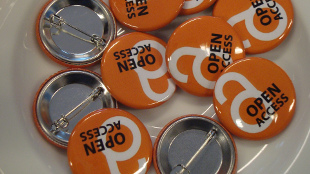 FLICKR, BIBLIOTEEKJE
FLICKR, BIBLIOTEEKJE
In a policy adopted by its academic council last month, the University of California (UC) system intends to make future research articles authored by faculty at all 10 of its campuses freely available to the public.
In a statement, the UC council said its “intent is to make these articles widely—and freely—available in order to advance research everywhere.” It also noted that this policy covers more than 8,000 faculty and up to 40,000 publications per year. As peer-reviewed research articles are published in academic journals, the council said they will also be published in UC’s open access repository, eScholarship, where they can be accessed by anyone at no cost.
According to The Chronicle of Higher Education, “getting 10 campuses to agree on a workable open-access ...



















